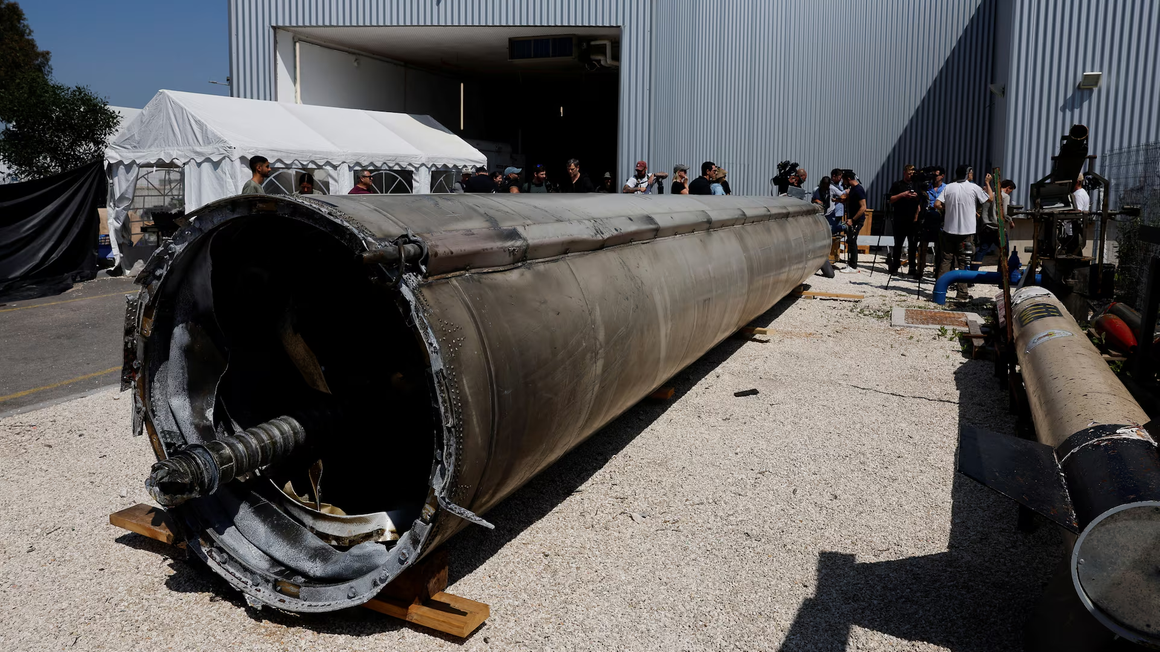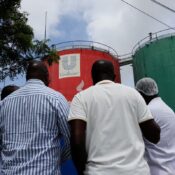
Regarding the Iran-Israel confrontation, Africa is still unsure
Africa is staying out of the argument over whether Israel should attack back, defuse the situation, or determine if Iran was correct or incorrect to attack Israel on Saturday of last week.
Despite using proxies to target each other, Iran launched its first direct attack on Tehran’s longstanding foe when it sent drones and missiles to Israel.
And the African Union is giving a pass, despite the fact that world leaders have either denounced or encouraged an increase.
On Wednesday, leaders of the European Union were anticipated to talk about intensifying sanctions against Iran.
The AU disapproves of sanctions in general. The bloc has consistently advocated for the removal of Western-imposed sanctions against Zimbabwe, Cuba, and other nations.
The AU had also been quick to denounce terrorist acts elsewhere, including in Iran, and to criticize Israel for its harsh response to the October 7 raid by Hamas, which the West believes to be an Iranian proxy.
The African perspective on Israel is dynamic. Israel has been expanding its diplomatic sphere of influence throughout Africa, reestablishing contact with nations with whom it had previously severed ties decades before.
But following the brutality of the Israeli military against the Palestinians following the October 7 attack in southern Israel by Hamas, nations such as South Africa, Chad, and Sudan stated that they were suspending or downgrading their diplomatic relations.
Algeria and South Africa had also objected to the AU’s original acceptance of Israel as an observer state.
However, member states of the continental bloc have not been silent, with some speaking out in a way that may further indicate that Africa is still not speaking with one voice.
Kenya expressed worry at Iran’s behavior, stating that it poses a threat to global security.
“Kenya is extremely concerned about Iran’s attack on Israel.” President Ruto stated on X, previously twitter, “This unsettling development only serves to exacerbate an already delicate situation in the Middle East.”
“All nations that cherish peace should condemn the attack, as it poses a genuine and imminent threat to global peace and security and violates the United Nations Charter.”
Ruto remained silent on Iran’s prior accusations that Israel had destroyed an Iranian diplomatic mission in Damascus, Syria, resulting in the deaths of seven personnel.
But he called on Israel to exercise “the utmost restraint considering the pressing necessity for all parties to withdraw from the brink beyond which recovery will be extremely challenging.”
“As UN Secretary General UN Antonio Guterres has stated, there is a very real danger of a devastating region-wide escalation,” stated President Cyril Ramaphosa of South Africa.
“South Africa emphasizes that all parties involved in this context should exercise the utmost restraint and refrain from taking any action that could escalate tensions in an already fragile region.”
According to some observers, Africa remains scarred from the catastrophe of the conflict in Ukraine, when the continent’s request for communication was turned down.
Even after presenting a “African Peace Proposal” to Russia and Ukraine, South Africa, Senegal, Uganda, the Republic of Congo, Comoros, and Egypt were disregarded.
World powers are pressuring African nations to choose a side in the meanwhile.
South Africa, which has long been a Moscow friend, ran the risk of being barred from the Agoa if it keeps up its military cooperation with the country that is currently under intense Western sanctions for its invasion of Ukraine.
Moscow accused the UN Security Council of failing to respond to Israel’s “provocation on Iran” following the Iranian attack.
Moscow stated on Monday, “We have repeatedly warned that tensions will be exacerbated by the numerous unresolved crises in the Middle East, particularly in the area of the Palestinian-Israeli conflict, which are often fuelled by irresponsible, provocative actions.”
Iran has stated that it is defending itself. A country or group of states may have an inherent right to collective self-defense in the event of an attack, according to Article 51 of the UN Charter.
Legal scholars have contended that using lethal force is not always necessary to exercise one’s right to self-defense.
The Iranian Embassy in Nairobi stated on Tuesday that the action was “in the exercise of Iran’s inherent right to self-defense…and proportionate response to the Zionist Regime of Israel’s recurring military aggressions.”
Iran claimed that on April 13, an Israeli attack on its diplomatic facilities in Damascus resulted in the murder of seven Iranian top military advisors.
All Categories
Recent Posts
Tags
+13162306000
zoneyetu@yahoo.com


